Masculinity under stress: late films by Sam Peckinpah and William Friedkin
I’ve just watched several Italian releases from Radiance, but I’ll need a little time to organize my thoughts, so this week I’ll take a look at a pair of poorly-received movies by two filmmakers who were seen to be well beyond their prime when they were made.
*
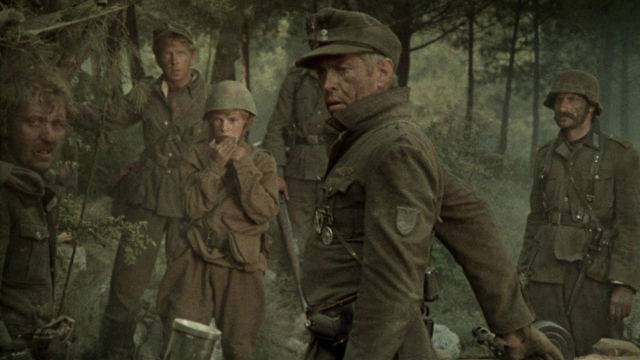
Cross of Iron (Sam Peckinpah, 1977)
Sam Peckinpah made only fourteen features in twenty-two years, beginning with the modest western The Deadly Companions (1961), which reflected his previous three years of experience on various western television shows, and ending with the messy paranoid thriller, The Osterman Weekend (1983), adapted from a Robert Ludlum novel. By the end, the toll of alcohol and drugs had caused severe damage to a talent which had produced some of the most powerful and iconic American movies of the ’60s and ’70s. But even near the start of his theatrical career, his personality had proved a difficult fit within the commercial requirements of Hollywood. After the elegiac western Ride the High Country (1962), he had made his first attempt at a revisionary epic with Major Dundee (1965), eventually losing control of the project when his producers balked at budget overruns; the final edit resulted in a crippled film shot through with flashes of brilliance. Even the partially restored version released forty years later can only suggest what Peckinpah had in mind because so much of the original footage was still missing.
That was just the first time that Peckinpah butted heads with backers who either misunderstood what he was trying to do or attempted to rein in his more radical reworking of what on the surface appeared to be conventional genre material. And yet over the next decade he created a string of (sometimes flawed) masterpieces in several different genres, though it took him another five years to succeed where Major Dundee had failed, with the critical and commercial success of The Wild Bunch (1969). That epic revisionist western provided the momentum for the most productive period of his career, from The Ballad of Cable Hogue (1970) to Cross of Iron (1977).

During those years, his work was overshadowed by his reputation for violence, but that undeniable fact was tempered by other qualities, particularly the deeply ingrained strain of melancholy for what he saw as the loss of a rugged individualism which had defined the American frontier and had been rendered obsolete and problematic by social change necessitated by the expansion of a national community in which violence was no longer an acceptable way to resolve conflicts. The tension between nostalgia and social constraints runs through the comedy of Cable Hogue, the fraught treatment of masculinity in Straw Dogs (1971), the elegy to a lost way of life in Junior Bonner (1972) and Pat Garrett & Billy the Kid (1973). In The Getaway (1972) and The Killer Elite (1975), Peckinpah seemed to be proving that he was as capable of making straightforward mainstream genre movies as the more exploratory personal movies which occasionally made producers and distributors uneasy (there’s no finished version of Pat Garrett, though there was an attempt to “fix” it in 2005 which was as problematic as the original theatrical version and the preview cut unearthed in 1988, which was no doubt the closest to Peckinpah’s intentions, though he never completed a fine cut).
The biggest problem with Pat Garrett was Peckinpah’s alcoholism, which by that time was severely compromising his ability to do the job. This plagued the rest of his career, most apparent in the overblown mess of Convoy (1978) and The Osterman Weekend. By the mid-’70s, he was also weighed down by the critical emphasis on the violence in his films – in fact, it certainly appears that Bring Me the Head of Alfredo Garcia (1974) was in part a response to that opinion; as if he was saying “you think I do nothing but violence? well, here’s what that really looks like”.
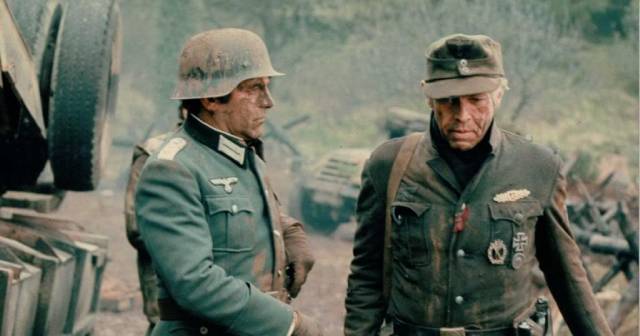
Which brings us to Cross of Iron. Having exhausted funding possibilities in the U.S., Peckinpah found unlikely backing from German producer Wolf C. Hartwig, with additional funding from Anglo-EMI in the U.K. Hartwig specialized in low-budget exploitation movies like the Schoolgirl Report series (1970-80) and was looking to branch out with something more prestigious. He may have bitten off way more than he could chew when he hired Peckinpah to direct an adaptation of the first published novel by Willi Heinrich, based on the author’s own experiences in the Wehrmacht on the Eastern Front. The film’s epic scale, location shooting in then-Yugoslavia and Italy, with studio interiors shot at Pinewood Studios in England, made for a complicated (and expensive) production which repeatedly ran ahead of available funds. However, the chaotic shoot isn’t apparent in the end result, which is as well-crafted as any movie in Peckinpah’s filmography, with fine performances from a large cast which includes a number of long-time Peckinpah collaborators (though, as with many international productions, viewers need to make allowances for the mix of styles and accents).
Given the themes which run through his work – the fraught nature of masculinity and its need to express itself through violence and extremes of physical endurance – it seems surprising that Cross of Iron is Peckinpah’s only war film. The Western had provided a rationale for his themes, while the contemporary movies necessitated action rooted in criminal behaviour to justify the explosions of violence. Only during war could such actions be socially sanctioned in the modern world, providing a ground from which to explore the psychology of masculinity and male bonding which runs through so many of his films. Without the complicating constraints of the law which necessarily set the protagonists of the other films apart from civilized behaviour, war enables Peckinpah’s interests to be clearly foregrounded.
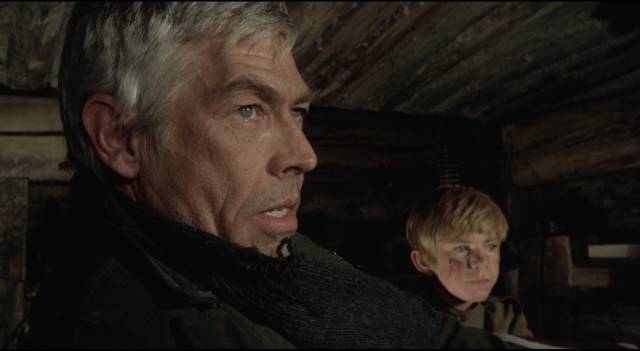
While the choice of a German story initially seems to problematize the project, it actually serves to highlight what interests Peckinpah the most. It strips the film of any ingrained viewer responses resting in the idea of “our side” against “the other”. The focus isn’t on rooting for the destruction of a dehumanized enemy – the characters are in fact members of that traditional enemy; rather, the emphasis is on the psychology of men in combat regardless of which side they may be on. These are the military workers dragged into situations not of their choosing and finding ways to cope – and if possible survive. Inherent in their position is an element of class; these men have been brought here by social and political superiors who view them as disposable tools to be used in furthering political and military aims.
The setting is the Eastern Front as the tide is turning against the Germans. An atmosphere of bitterness, disillusionment and exhaustion hangs over this army in retreat. The main character is Corporal Steiner (James Coburn), an experienced soldier whose only purpose is seeing that his squad survives. Given his skills, his commanders use him for reconnaissance missions which continually put him and his men at risk, though these officers – Colonel Brandt (James Mason) and Captain Kiesel (David Warner) – have great respect for Steiner. Long, gruelling years together in combat have formed bonds between the upper class officers and the working class NCO which transcend social distinctions, but as the retreat gets underway, a new officer arrives. This is the ambitious aristocrat Captain Stransky (Maximilian Schell), who has requested the transfer from occupied France because he’s desperate to win an Iron Cross and this is more likely on the deadlier Eastern Front.

Unlike Brandt and Kiesel, Stransky has no respect for his inferiors and no interest in the survival of those beneath him. Although he’s a Wehrmacht officer, the presentation of Stransky suggests more of an affinity with the SS, a Nazi rather than a career soldier. After a Russian attack, Stransky takes credit for leading a counterattack which in fact was led by another man, who died. Needing witnesses who will vouch for his bravery, though he was actually seen to be afraid and indecisive, he demands that Steiner testify on his behalf. The corporal refuses, so when the battalion receives orders to retreat Stransky doesn’t pass the order on to Steiner, who finds himself and his squad caught behind Russian lines, having to fight their way back. Although they radio ahead to ensure that the battalion knows they’ll be coming back through the line at dawn, Stransky orders his men to “mistake” them for Russians and kill them.
Only Steiner and two of his men survive and as the Russians launch an attack, he finds Stransky and, instead of killing him, gives him a gun and forces him to turn and walk into the oncoming slaughter so he can see firsthand “where the Iron Crosses grow”.
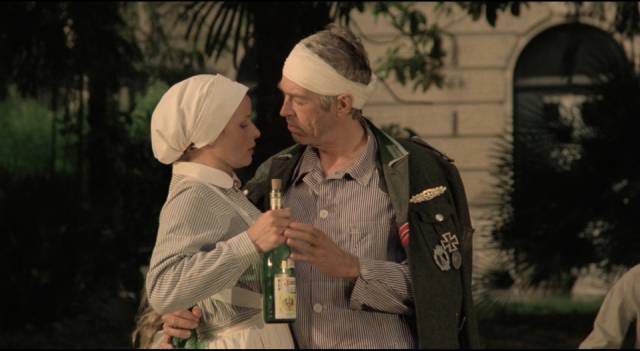
In the context of the movie, while on the grand scale two armies are engaged in the major conflict, in the microcosm of this one small part of the German army, what counts is the personal conflicts among a group of men whose social positions have been disrupted and distorted by the regime in whose name they fight. Circumstances have allowed them to reveal their true natures and act on their most primal impulses. Survival trumps decency and honour, and Steiner is concerned with the lives of his men, unlike Stransky who thinks only of personal glory even at the cost of others’ lives.
Along the way, the film plays multiple variations on these themes. When Stransky discovers that his adjutant Lieutenant Triebig (Roger Fritz) is a homosexual, he blackmails him into supporting his claim of leading the counterattack, and later pressures him to gun down Steiner’s squad as they come back through the line. When, on the way back, Steiner’s men encounter a group of female Russian soldiers and the Nazi Zoll (Arthur Brauss) attempts to rape one of them, Steiner disarms him and locks him up with the women to receive some brutal justice. With the superstructure of society stripped away by war, all judgments and actions derive from personal character and in the end it’s Steiner, the man who feels a mutual bond with those he has become responsible for, who displays the closest thing to decency in an intolerable situation. He’s this film’s equivalent to Pike Bishop (William Holden) in The Wild Bunch (1969), trying to hold on to some kind of code in a world corrupted by large forces which encourage betrayal in the name in self-interest.
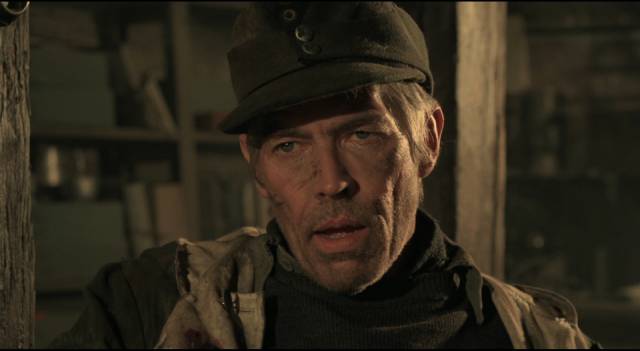
By the time Cross of Iron was released Peckinpah’s reputation was in decline. None of his post-Wild Bunch films had received the adulation of that one (though there were certainly dissenting voices even there). Almost universally, American critics dismissed the war film as a pointless exercise in unpleasant displays of violence. No doubt these opinions were coloured by their ingrained antagonism to Peckinpah – it was better received in Europe – and Cross of Iron has been slower than some of the director’s other films to receive a re-evaluation. Even Bring Me the Head of Alfredo Garcia has gained a better reputation. But despite being hampered by his personal problems, this is as much a signature Peckinpah film as The Wild Bunch, though made eight years later it has lost that Western’s paradoxical nostalgic glow and finds masculinity under stress to be far grimmer than previously depicted.
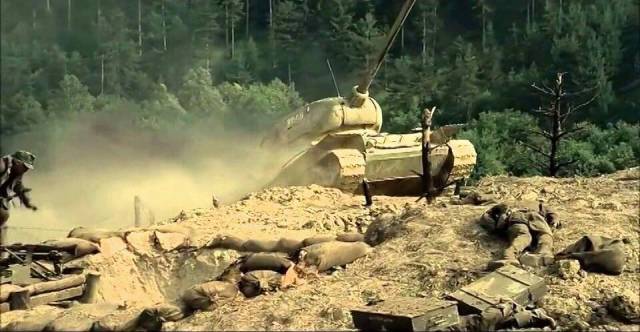
The Imprint Limited Edition dual-format set includes one 4K UHD disk and two Blu-rays. There have been a number of previous editions on DVD and Blu-ray, but Studio Canal’s 4K restoration provides the film’s best video presentation yet, giving depth and texture to John Coquillon’s cinematography, which uses a muted colour palette mostly in earth tones. The disks are loaded with extras – pretty much everything which has appeared on previous disks, with numerous archival interview clips, plus the 49-minute episode of Mike Siegel’s on-going documentary project about Peckinpah’s work, Passion & Poetry; the Stephen Prince commentary from the 2006 Hen’s Tooth DVD is joined by a new track from Siegel; there are two new lengthy interviews with the film’s editors and makeup supervisor; and the second Blu-ray includes a “grindhouse” version scanned in 2K from a German print, with the image opened up to 1.57:1, exposing more of the open-matte frame.
*
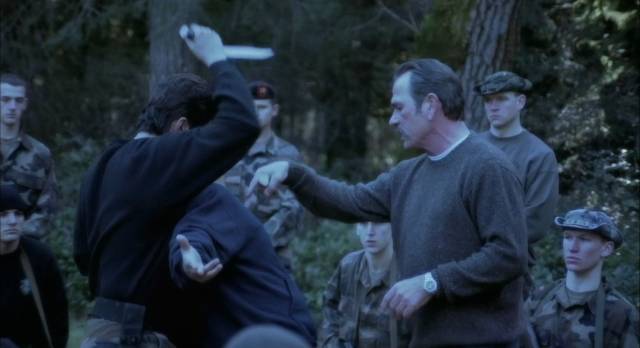
The Hunted (William Friedkin, 2003)
William Friedkin was also a filmmaker with a long-standing interest in issues of masculinity – the strange bond between cop and criminal in The French Connection (1971), the doubts shared by two priests with a tentative father-son connection in The Exorcist (1973), the lost souls driven to physical extremity in Sorcerer (1977), the identity of a young cop who goes undercover in the gay underground in Cruising (1980) and the connection between cop and criminal again in To Live and Die in L.A. (1985). After the latter, he lost his influential place as one of the major figures pushing the limits of commercial filmmaking in Hollywood, though he continued to work right up to his death last year, with a few notable projects in his seventies and eighties (Bug [2006], Killer Joe [2011], The Caine Mutiny Court Martial [2023]).
I must admit that in the twenty years between To Live and Die in L.A. and Bug, Friedkin largely disappeared from my radar though I vaguely recall hearing about the serial killer movie Rampage (1987) and the military courtroom drama Rules of Engagement (2000). I did see The Guardian (1990), an absurd horror film, but skipped Jade (1995), no doubt because by then I’d had enough of Joe Eszterhas. But I’d never even heard of The Hunted (2003) until I came across a copy while browsing in the minuscule movie section of a local bookstore. The combination of Friedkin, Tommy Lee Jones and Benicio Del Toro was enough to make me take a chance so I bought the Blu-ray.
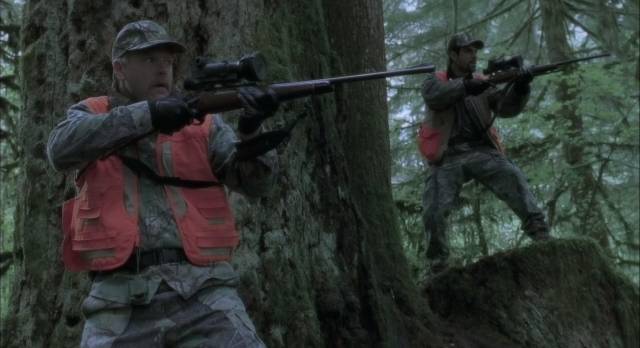
The script, by David Griffiths, Peter Griffiths and Art Monterastelli, is stripped down to the point of seeming like a schematic for an action movie with the characters little more than placeholders. Friedkin applies his technical skills efficiently and Jones and Del Toro (and Connie Nielsen in a thankless supporting role) do what they can, but the suggestion of thematic weight is unsupported by the writing. This is about damaged men unable to live in society and driven to express themselves in mutually destructive violence. It’s also about a son and father locked in … well, a cycle of mutually destructive violence.
The father is L.T. Bonham (Jones), a former trainer of special ops soldiers in techniques of hand-to-hand combat, now a protector of wildlife in the woods of British Columbia; the son is Aaron Hallam (Del Toro), a soldier trained by Bonham now so damaged by his training and experiences that he’s retreated to the woods of the Pacific Northwest where he avoids people until he comes across some hunters using high-tech weaponry to slaughter deer. When Hallam kills these men (and dresses their bodies like freshly killed game), the FBI go looking for Bonham to ask him to track his former student.
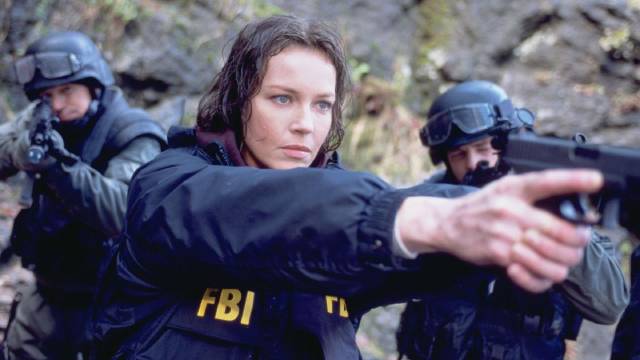
Bonham finds Hallam surprisingly quickly and he’s arrested – but he quickly escapes and the rest of the movie is a cat-and-mouse chase around the region, with Hallam stopping by to visit a former girlfriend and her young daughter, where we see the gentleness and charm which has been all but swept away by the training which led to homicidal madness. Bonham feels responsible, but he also feels protective towards this wayward son, constantly diverting the FBI and cops as he tries to deal with Hallam by himself … which leads to a climactic one-on-one fight on the banks of a raging river where the pair work out their demons in increasingly implausible ways – while Hallam whips up a deadly blade from a piece of scrap metal he heats in a small campfire, Bonham makes his own knife by chipping away at a chunk of flint. This ancient weapon supposedly ties in to the framing voiceover which has Johnny Cash relating the story of Abraham and Isaac, the father ordered by God to sacrifice his only son. This attempt at gravitas just hangs there, its meaning never made clear.
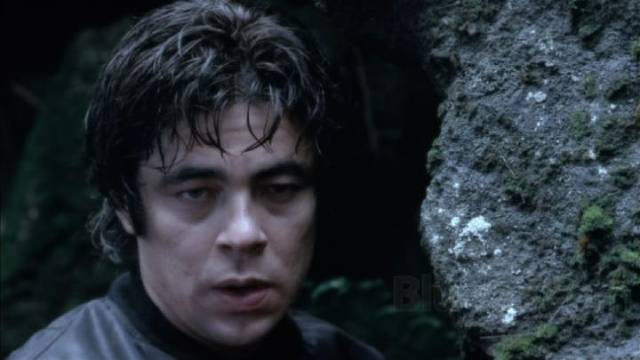
But the Biblical reference isn’t the only thing used to make the simple narrative seem portentous. The opening sequence, set in Kosovo in the late ’90s, is a vision of Hell, an overwhelming depiction of the horrific things men (oh, yes, it’s men) do to people they have deemed less than human. A Serbian militia massacre an entire town’s population. By the light of burning buildings, we see men, women and children pushed into mass graves and machine-gunned as several American soldiers sneak through the chaos looking for the Serb commander. When Hallam finally locates the man, he kills him in a brutal hand-to-hand fight, but although he’s completed the mission he’ll never be able to unsee the horrors he was unable to prevent. This is the trauma he carries back to the States, making him despise any form of cruelty – putting him in a conflicted position when he dispatches those hunters in a very cruel way.
While we understand Hallam to some degree, it’s more difficult to get a handle on Bonham. An apparent pacifist who has never killed anyone himself, he has trained many men in the stealthy techniques of inflicting a silent death on those deemed enemies. It’s not about guns, but rather up-close-and-personal lethal force involving blades (and any other tools which might be handy). Why this quiet, caring civilian got into this line of work is never explained; it’s a piece of mechanical plotting which sets him up to be the reluctant father figure who must necessarily kill the wayward son.
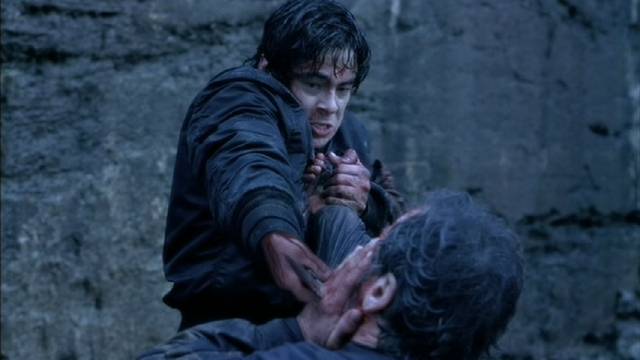
Despite the attempts to freight a simple narrative with some kind of deeper significance – a narrative better-handled by Ted Kotcheff two decades earlier in First Blood (1982) – Friedkin handles the action with skill, keeping things moving quickly so the audience doesn’t have time to pause and think about why it’s not really working. It’s a little sad to see a filmmaker who once made critically and commercially significant movies expending energy on a throw-away B-movie like this. But at least he found his footing again three years later when he teamed up with writer Tracy Letts and actors Ashley Judd and Michael Shannon for the nightmare intensity of Bug.
The Paramount Blu-ray has a mediocre visual quality (I’m sure Caleb Deschanel’s photography of the rugged landscapes looked better than this); there’s a director commentary, a half-hour of making-of featurettes and ten-minutes of unnecessary deleted scenes.
*
While both Cross of Iron and The Hunted deal with the damage inflicted on men by the violence they engage in, Peckinpah seems to be personally concerned with the theme while it remains unclear what Friedkin actually thinks of the story he’s telling. Despite the reviews, Cross of Iron bears the hallmarks of a personal statement; The Hunted, however, appears to have been little more than a job for Friedkin.
Comments